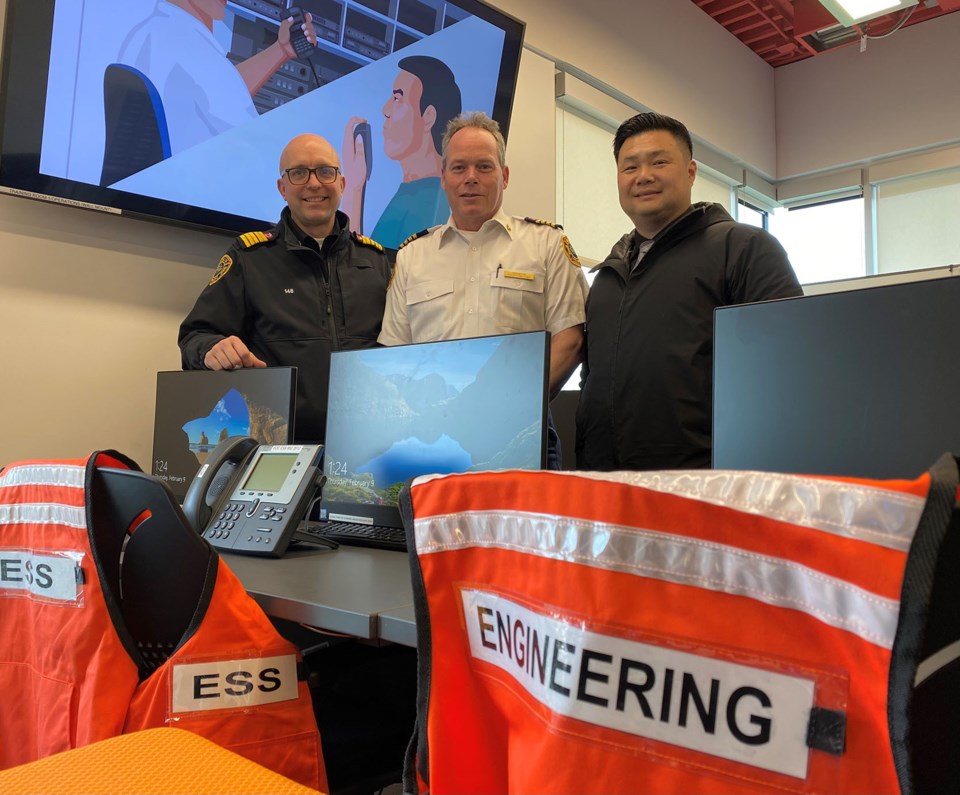What if the big one was to hit off the coast of Tsawwassen?
That’s what the City of Delta’s various departments, along with the police and fire services, wanted to find out this week with a large-scale emergency exercise to test the local coordinated response to a major earthquake that results in all telecommunication and power becoming unavailable.
Firehall No. 4 near the Boundary Bay Airport not only acts as the fire department’s training centre, but also Delta’s Emergency Operations Centre (EOC), where a communications centre is immediately established and procedures, roles and responsibilities are put to the test.
Fire Chief Guy McKintuck said the EOC is activated when a local state of emergency is declared or in a preemptive move for an event seen coming, such as storm surges or wind events, as well as unforeseen circumstances such as a bog fire.
Deputy Fire Chief Dave Ayton, who is also the city’s Emergency Program Coordinator, explained that there’s different sections within the operations centre where various personnel in designated sections communicate and coordinate activities, including an operations, planning, logistics and even a finance section, all overseen by a director who is usually the city manager.
When an event such as an earthquake occurs, volunteers with the Delta Amateur Radio Society will also assist by relaying which infrastructure in the community has been impacted to one of their members who has their own space in a communication room at the EOC, which is also shared by other emergency personnel, including police, fire and the engineering departments.
That information is also relayed to each of Delta’s firehalls where radio society members are also situated.
The latest information is also forwarded to the EOC’s planning section, which comes up with a plan that is then forwarded to a policy group for approval. The operations section is tasked with seeing that the plan is carried out, working with the logistics section and all coming together for an action plan that is forwarded to the operation centre’s director.
If everything goes according to procedure, there should be no confusion as to how the lines of communication flows, said Ayton.
“We get asked why would you open an EOC? When an event gets too large for a single agency to handle, or the city is getting overrun, the EOC is the support branch for the city. The EOC would have business continuity,” he said. “The city needs to keep running, even though there’s an event going on…the EOC works with stakeholders and agencies. The EOC stays strategic, the site stays tactical.”
The mock exercise was part of an overall a large-scale emergency preparedness training exercise in British Columbia, with a simulated alert sent to Exercise Coastal Response 2023 (CR23) participants.
The exercise included nearly 200 participating organizations and began four days into the simulated earthquake event, involving a large population and complex infrastructure, including major bridges, ports, airports, railways and highways.
The goal was to test overall preparedness, with a focus on co-ordination and inter-agency communication, for large-scale earthquakes and other emergencies.




